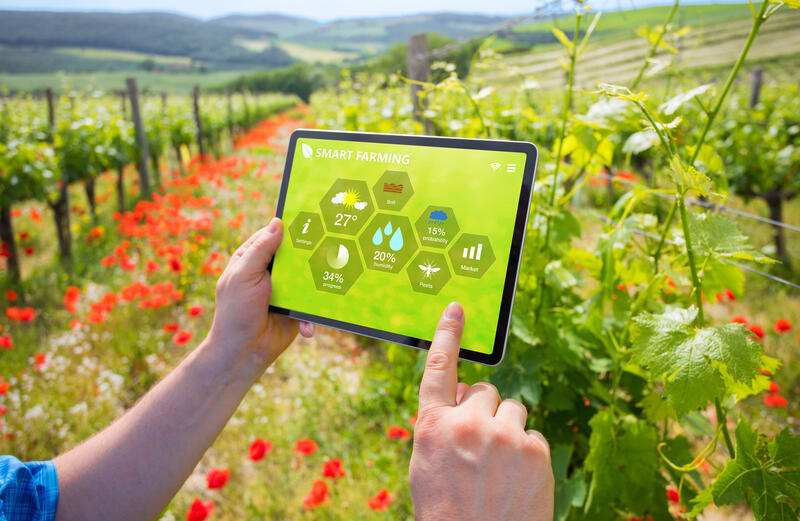Africa’s agricultural sector is the backbone of its economy, employing millions of people and contributing significantly to the continent’s GDP. However, the sector faces numerous challenges, including low productivity, limited access to markets, and inadequate extension services. Digital extension has emerged as a promising solution to address these challenges and promote agricultural development in Africa. In this article, we will explore the role of digital extension in promoting agricultural development in Africa, its benefits, and the challenges that need to be addressed.
What is Digital Extension?
Digital extension refers to the use of digital technologies, such as mobile phones, computers, and the internet, to provide agricultural extension services to farmers. These services include advisory services, training, market information, and other support services that help farmers improve their productivity, income, and livelihoods. Digital extension platforms use various tools, such as mobile apps, SMS, voice messages, and video conferencing, to reach farmers and provide them with the information and support they need.
Benefits of Digital Extension in Africa
Digital extension has numerous benefits for African farmers, including:
- Increased Access to Information: Digital extension provides farmers with access to timely and relevant information on agricultural practices, market trends, and weather forecasts. This information helps farmers make informed decisions and improve their productivity.
- Improved Productivity: Digital extension platforms provide farmers with access to expert advice and training, which helps them improve their farming practices and increase their productivity.
- Better Market Access: Digital extension platforms provide farmers with market information, enabling them to sell their produce at better prices and increase their income.
- Reduced Costs: Digital extension reduces the costs associated with traditional extension services, such as travel and personnel costs.
- Increased Efficiency: Digital extension platforms enable extension agents to reach more farmers and provide them with support services more efficiently.
Role of Digital Extension in Promoting Agricultural Development in Africa
Digital extension plays a critical role in promoting agricultural development in Africa by:
- Enhancing Farmer Knowledge: Digital extension platforms provide farmers with access to knowledge and information that helps them improve their farming practices and increase their productivity.
- Improving Agricultural Productivity: Digital extension platforms provide farmers with expert advice and training, which helps them improve their productivity and income.
- Promoting Climate-Smart Agriculture: Digital extension platforms provide farmers with information on climate-smart agricultural practices, enabling them to adapt to climate change and reduce their vulnerability.
- Supporting Smallholder Farmers: Digital extension platforms provide smallholder farmers with access to information, markets, and support services, enabling them to increase their productivity and income.
- Fostering Innovation: Digital extension platforms enable farmers to access new technologies and innovations, which helps them improve their productivity and competitiveness.
Examples of Digital Extension Initiatives in Africa
Several digital extension initiatives have been launched in Africa, including:
- M-Farm: M-Farm is a mobile-based platform that provides farmers with market information and advice on agricultural practices.
- Esoko: Esoko is a digital platform that provides farmers with market information, weather forecasts, and advisory services.
- FarmDrive: FarmDrive is a digital platform that provides farmers with access to financial services, market information, and advisory services.
- Digital Green: Digital Green is a digital platform that provides farmers with access to video-based training and advisory services.
Challenges Facing Digital Extension in Africa
Despite the benefits of digital extension, several challenges need to be addressed, including:
- Limited Access to Digital Infrastructure: Many African farmers lack access to digital infrastructure, such as mobile phones and internet connectivity.
- Limited Digital Literacy: Many African farmers lack the digital literacy skills needed to access and use digital extension platforms.
- Language Barriers: Digital extension platforms often need to be translated into local languages to reach a wider audience.
- Limited Content Relevance: Digital extension platforms need to provide content that is relevant to the specific needs and contexts of African farmers.
- Sustainability: Digital extension platforms need to be sustainable and scalable to have a lasting impact on agricultural development in Africa.
Conclusion
Digital extension has the potential to transform African agriculture by providing farmers with access to information, markets, and support services. However, several challenges need to be addressed to ensure the sustainability and scalability of digital extension platforms. African governments, development partners, and private sector actors need to work together to address these challenges and promote the adoption of digital extension platforms. By doing so, we can promote agricultural development, improve food security, and reduce poverty in Africa.

